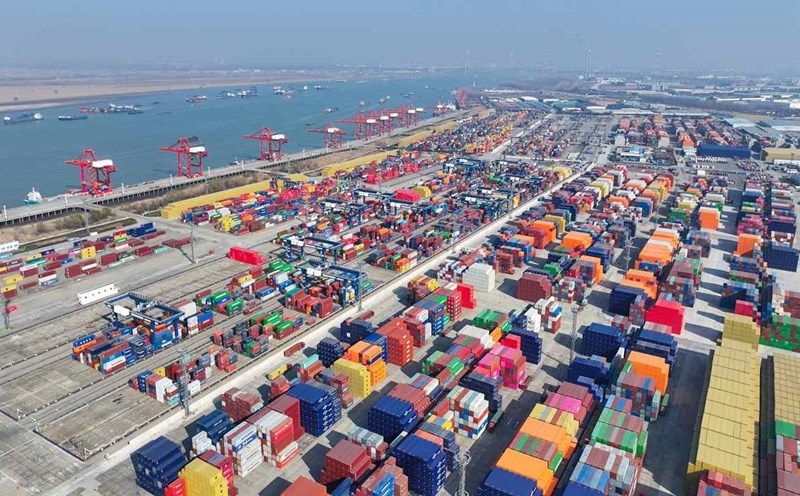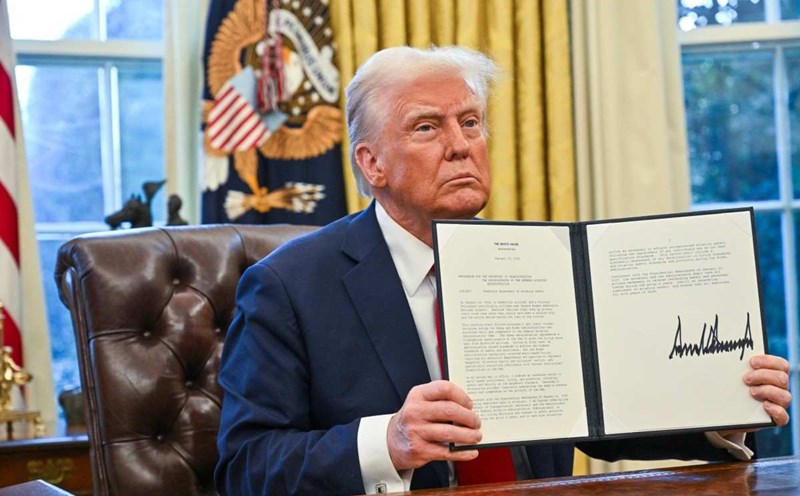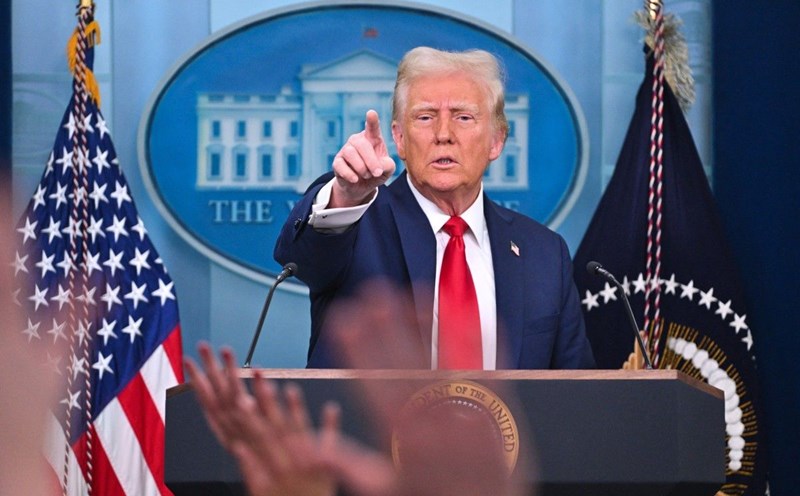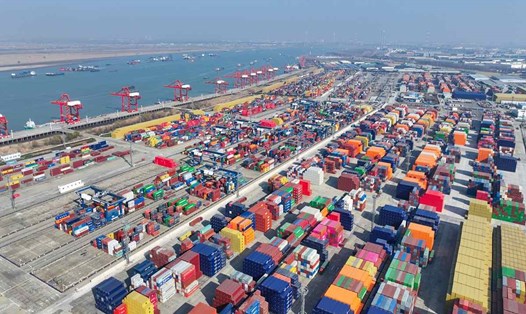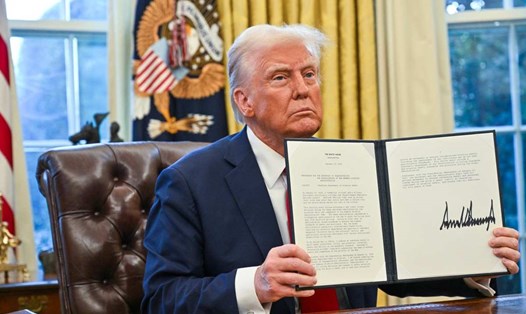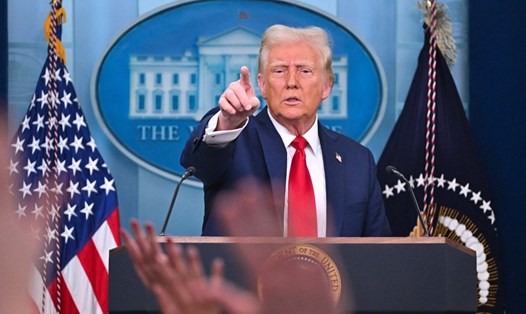Meanwhile, China will still face an additional 10% tariff on exports to the US from February 4.
This is the third time in two weeks that Trump has suspended plans to impose tariffs on two US trading partners close to the border. The decision came after discussions on February 2 with Canadian Prime Minister Justin Trudeau and Mexican President Claudia Sheinbaum.
Stepping back to the brink of trade confrontation
The last-minute deal was announced in the context of the global financial market being rocked by the prospect of escalating trade tensions between the world's leading economies.
Earlier, Trump shocked US-Mexico relations last weekend by declaring a 25% tariff and accusing President Claudia Sheinbaum's administration of having an "unreceptable alliance" with Mexico's criminal gangs. Mexico immediately denied the allegations and called them false, but later chose to take the low when it reached a series of agreements with Washington.
Sheinbaum said Mexico will deploy 10,000 members of the national Guard to prevent drug smuggling, especially fentanyl, to the US. In return, the US pledged to strictly control the flow of large-capacity weapons into Mexico.
Trump later confirmed the deal on the social network Truth Social, stressing that Mexico would move 10,000 soldiers to block the fentanyl River and illegal immigrants into the US.
Canada also reached a last-minute agreement
Canadian Prime Minister Justin Trudeau announced that the US will temporarily suspend the tax for another 30 days, in return, Canada will implement a plan to strengthen border security worth 1.3 billion USD.
Nearly 10,000 frontline personnel will be deployed to protect the border, along with helicopters, modern technology and closer cooperation with the US to stop fentanyl, Trudeau said.
Reactions from the market and internationally
Information about the deal with Mexico has helped the financial market somewhat recover after a sharp decline at the beginning of the week. The S&P 500 index fell nearly 2% in the morning trading session of February 3 before recovering slightly. European and Asian stocks were also under great pressure, with the UK FTSE 100 down 1.4% before recovering somewhat.
Meanwhile, the EU is also on Trump's radar. Speaking in Brussels, French President Emmanuel Macron warned that if the US imposes tariffs on Europe, the EU will take strong retaliatory measures. German Chancellor Olaf Scholz also stressed that the EU is ready to impose retaliatory tariffs but still prioritizes the search for a peaceful trade solution.
Despite economists' warnings about the risk of escalating prices and negatively affecting the US economy, Mr. Trump still affirmed that tariffs are a "powerful tool" to strengthen the US's economic position.
I am very satisfied with this initial result. The tariffs announced on January 2 will be postponed for 30 days to see if we can reach a fair trade deal with Canada, Trump wrote on Truth Social.
With this delay, the trade conflict between the US and major partners is still far from over, while investors continue to wait for the next developments from the White House.

